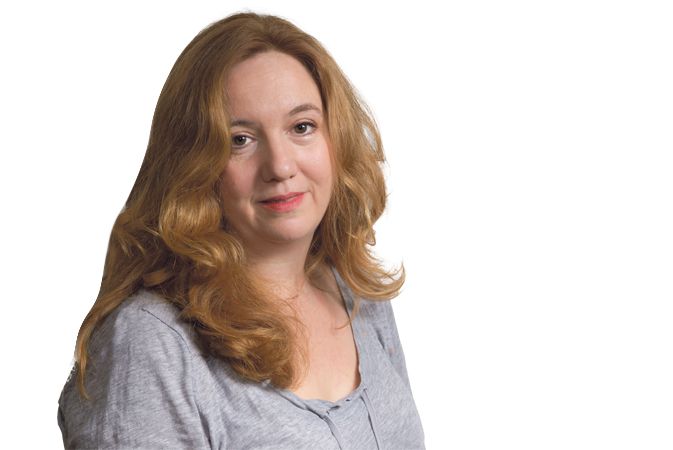They call it the sunshine island though it’s more Baltic than Caribbean. Bornholm is an utterly charming little chunk of Denmark that’s actually halfway to Poland. Having just a week to fill and limited funds, Bornholm promised to be a great choice for us for a traditional family holiday.
Much to my husband’s chagrin, our hire car didn’t have a navigation system and I was in charge. Everything went fine until about Malmö, so in other words things weren’t fine for all that long, but by the time we saw the signs for Gothenburg, a traditional family holiday marital skirmish was inevitable.
As we ground to a halt inside the world’s largest catamaran ferry, my husband got his revenge by parking so close to the ferry wall that I had to scramble over the seats to get out, pipping the horn on my way. It’s been many years since I cavorted in a vehicle and I remember it being much more fun than that.
Once aboard the ferry it only takes an hour and a half to reach Bornholm and everything around you assures you that it will be dejlig and bornholmsk. A patchy phone signal made map access difficult and meant that an A4 map of the island’s Dagli Brugsen supermarkets was all that stood between me and certain divorce.
Somehow, near midnight, we arrived at the Dan Hostel Boderne, where we had booked a family room and were given a wonderfully warm welcome.
The next few days were jam-packed with all sorts of Bornholm fun: sandy beaches, cliff-top walks and a fabulous horse and cart trip through the Almindigen Forest. On the last day, we rented bicycles to take advantage of the many cycle paths on the island.
“I didn’t think people in the UK cycled,” said another guest, who was cycling around Bornholm with his family while wearing those cycling shorts with gel inserts that give you a sinister looking derriere.
“Well we do, actually,” I said, fixing Sinister Cycling Shorts with my frostiest stare. We spent a few minutes getting our daughter used to a back pedal brake rather than handle bar brakes and set off. There were fields of green and stunning woodland, and it was bliss until our little girl needed to stop quickly and forgot about the back pedal brakes. Her bike careered into a ditch and she, screaming blue murder, hit the deck. And so it was that we added the cherry to the cake of the traditional family holiday: a trip to the dejlige bornholmske hospital.
We started off upbeat, but after a couple of hours we started to wonder if anyone remembered we were there. The three other parties waiting for X-rays were wondering the same thing. Magnus, a Swedish boy scout, had hurt his elbow. A large lady named Heidi had twisted her ankle. So when the triage nurse came out after about three hours, we all jumped to attention as she gave us slips of paper we had to go to X-ray.
I looked at Magnus and his scout master, and then at Large Heidi, and in that moment it was as though a starter pistol had been fired. We all knew that it was survival of the fittest, no matter how jolly things had been in the waiting room.
The Brickman family gained an early lead out of the gates, closely followed by Boy Scout Magnus and Large Heidi bringing up the rear. But then we misread the signs and failed to turn left, letting Boy Scout Magnus cut in front before Large Heidi, realising that everything was at stake, cut him off and ran him into the wall with her wheelchair. In a photo finish, I took advantage of this momentary tussle and skidded along the final five metres of corridor, wedging my foot in the door and securing my daughter’s status as first in the queue.
The arm was indeed broken. A cast was put on and in the end they did a good job. The next day we set off home and who should we meet on the ferry but Sinister Cycling Shorts.
“How was the cycle ride?” he asked. I hurriedly positioned myself to hide my daughter’s injured arm. National pride was at stake here, so I looked him in the eye and said: “Dejligt!”















